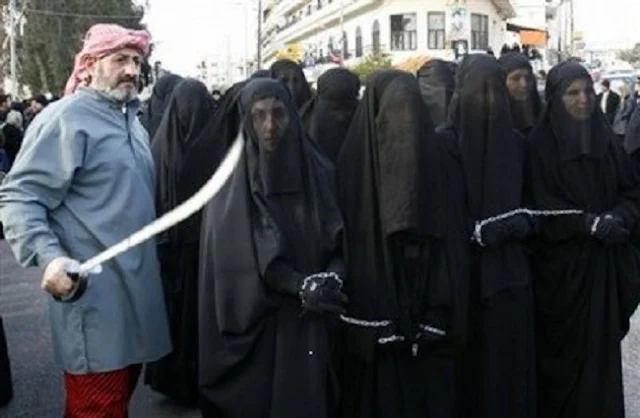
Women in Islam are guided by primary Islamic sources of personal law, namely the Quran and hadiths, as well as secondary sources such as the ijma, qiyas, ijtihad in form such as fatwas; the secondary sources vary with various sects of Islam and schools of jurisprudence (madhhab). In certain regions, in addition to religious guidelines, pre-Islamic cultural traditions play a role. Islamic laws and cultural customs impact various stages of a Muslim women's life, including her education, employment opportunities, rights to inheritance, female circumcision, dress, age of marriage, freedom to consent to marriage, marriage contract, mahr, permissibility of birth control, divorce, sex outside or before marriage, her ability to receive justice in case of sex crimes, property rights independent of her husband, and when salat (prayers) are mandatory for her. Polygyny is allowed to men under Islam, but not widespread; in some Islamic countries, such as Iran, a woman's husband may enter into temporary marriages in addition to permanent marriage. Islam forbids Muslim women from marrying a non-Muslim. There is debate and controversy on gender roles according to Islam.
Sharia provides for complementarianism, differences between women's and men's roles, rights, and obligations. Being a Muslim is more than a religious identity; Islam outlines and structures ways in which Muslim women should live their lives on a day-to-day basis. In majority Muslim countries women exercise varying degrees of their religious rights with regards to marriage, divorce, legal status, dress code, and education based on different interpretations. Scholars and other commentators vary as to whether they are just and whether they are a correct interpretation of religious imperatives.
Sharia provides for complementarianism, differences between women's and men's roles, rights, and obligations. Being a Muslim is more than a religious identity; Islam outlines and structures ways in which Muslim women should live their lives on a day-to-day basis. In majority Muslim countries women exercise varying degrees of their religious rights with regards to marriage, divorce, legal status, dress code, and education based on different interpretations. Scholars and other commentators vary as to whether they are just and whether they are a correct interpretation of religious imperatives.
